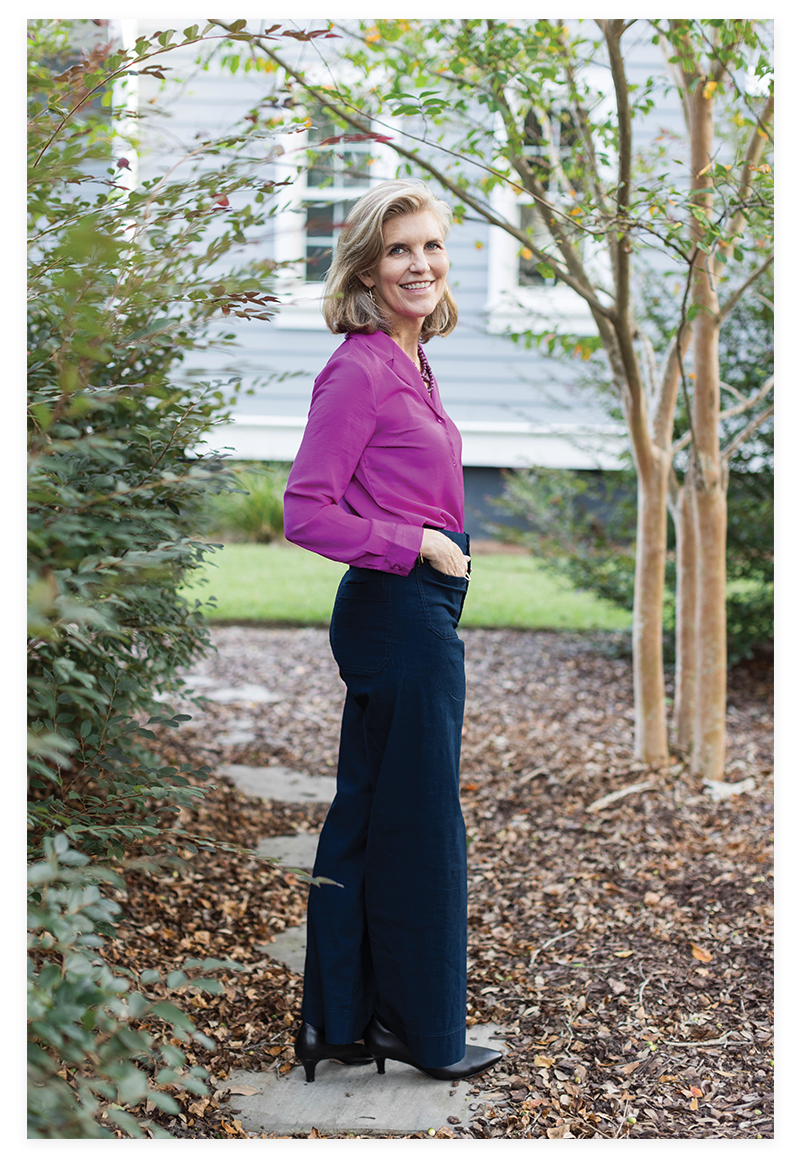
Campaigne, pictured in her Mount Pleasant yard, says that while the South has an outsize footprint in climate change, we have a big opportunity to fix it.
Written By Margaret Loftus
Portrait By Taylor Jordan Krauser
Growing up on a farm, Alys Campaigne forged a deep connection to nature, but early on, she also sensed a disconnect between those who were stewards of the land and those who made policy. Bridging that divide would become her life’s work, most recently as Southern Environmental Law Center’s (SELC) first climate initiative leader. “I love connecting my passion for place with solutions to protect our health and natural environment,” she says.
Campaigne brings years of experience in Washington, DC, where she worked in the House and Senate, participated in the 1997 climate negotiations in Kyoto, Japan, and later served as legislative director at the National Resource Defense Council. After a decade in DC, she and her husband, George, relocated their family to Charleston in 2006. “[The move] was about getting back to a place where the landscape takes center stage,” she says.
Once here, Campaigne continued her mission, running a strategic services firm that specialized in environmental policy for groups like the Gaylord and Dorothy Donnelley Foundation and Monterey Bay Aquarium and joining the board of Charleston Waterkeeper. When SELC was looking to elevate its work on climate change, she jumped at the perfect fit. “My role involves scaling up that work, using local knowledge to shape better decisions,” she says, noting that our region has an outsized climate change footprint. “If the South were a country, we’d rank in the top 10 climate pollution emitters in the world, plus we’re especially vulnerable to its effects,” she says.
As a result, SELC has bold goals, such as decarbonizing our energy and transport systems, preserving nature-based carbon sinks, and helping vulnerable communities adapt. Already, the group has helped reduce the coal footprint of its six-state region by nearly half in the last 12 years.
Wins like these keep Campaigne optimistic. “There’s no doubt that climate change and its impacts can be overwhelming. Mother Nature is staging an intervention,” she admits. “But as chef José Andrés recently said, ‘In the worst moments of humanity, the best of humanity shows.’ I believe that. There are always those who are shining a light on the path forward, and that energy is palpable right now.”